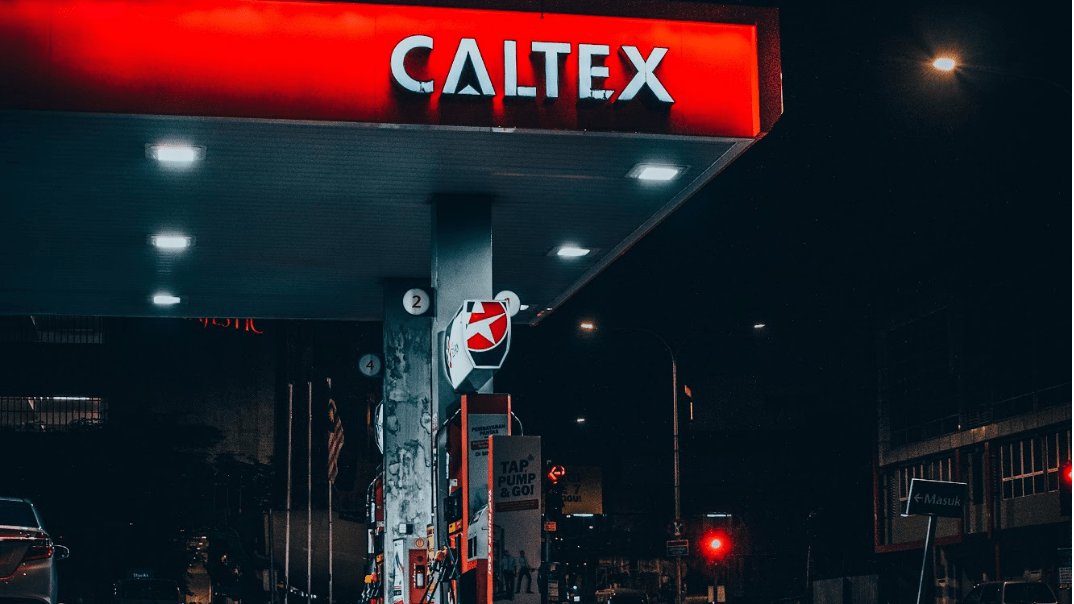
The story behind your fuel! Here we share information on your petrol you probably don’t know…
Do you understand your fuel? Probably not!
Estimated reading time: 5 minutes, 3 seconds.
Here we dig into five fascinating charts that show some of the mystery behind what drives our fuel prices, South African usage, and more!
1. The process of petrol prices
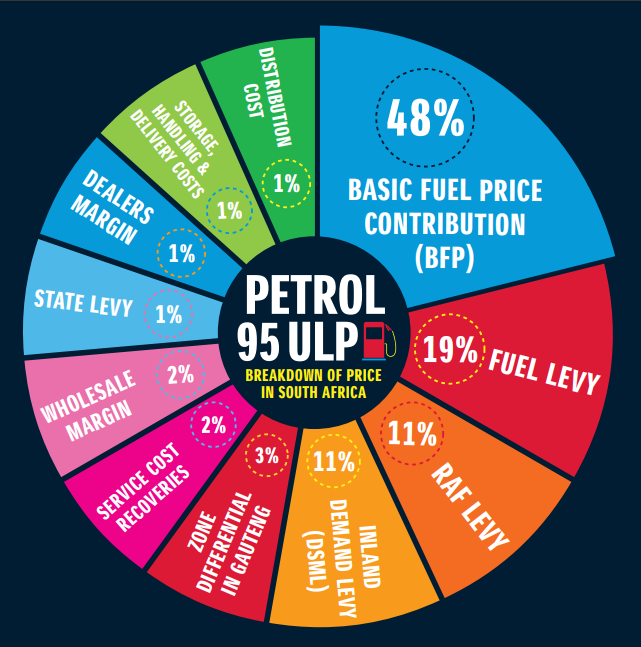
Cycling to work, carpooling more often or working from home may be what South Africans need to do this year, with the ever-increasing fuel price. In 2018, South African motorists experienced fuel prices which saw it increase to the highest it's ever been, at R17.08.
We were lucky enough to get a slight decrease with 93 Octane unleaded fuel standing at R 13,79 as of 2 January 2019, but as we brace ourselves for an uncertain fuel price future this new year, we take a look at this process and how much other countries in the world pay to get around.
It’s difficult to keep up with the constant fluctuation of petrol prices and the process of determining the fuel price doesn’t make it any easier. Oil producing countries such as the U.S, Russia, Saudi Arabia and China have complete control of the supply, leaving countries like South Africa in less control. As we all know, the Rand/US Dollar exchange rate plays a big role in what we pay for petrol because all our oil is paid for in dollars.
Wholesale and retail profit margins are some other factors that do affect the fuel price but not to a large extent. The government applies the Fuel Levy and Road Accident Fund (RAF) levy are the taxes that affect the fuel prices and are usually set in the annual Budget. This year, the ministry of finance pushed the Fuel Levy up by 7% to R3.37 and the RAF levy had a whopping 18% increase making it R1.93.
Every car is different in some way and everyone has their own tips and tricks to get the most out of their vehicle. We’ve compiled an eBook of 101 Car Facts of the best car tips in one place just for you.
2. Fuel price over the last ten years
-5-1.png?width=600&name=Untitled%20design%20(2)-5-1.png)
Graph by Business Insider South Africa
This is how South Africa’s petrol prices and fuel levy have increased the past 10 years, based on official figures released by the department of energy. South Africans consume 11,1-billion litres of petrol and 12,1-billion litres of diesel a year! According to Bloomberg, South Africans have a daily income of R237.53 and motorists spend 5.98% of that daily income to afford just one litre of fuel. Bloomberg says the country comes in at number 60 in terms of total income spent on fuel, with the average South African motorist spending 3.31% of the average salary on 202.07 litres of petrol a year.
With 11 million vehicles on the roads, that’s a lot of fuel used each year.
3. How much the average SA household spends on transport
-3.png?width=1074&name=Untitled%20design%20(3)-3.png)
Image from Brand South Africa
According to Statistics South Africa, “In 2015, the average South African household consisted of three to four persons, with an average annual income and consumption expenditure of R138,168 and R103,293, respectively. The greatest household expenditure went to housing and utilities (32.55%), followed by transport (16.29%).” This means that households spend more money on transport, in all its various forms, than on education and health!
4. Using more money to buy fuel than new cars
-3.png?width=1074&name=Untitled%20design%20(4)-3.png)
Graph from South African Market Insights
According to the latest motor trade sales from Statistics SA, South Africans are spending more on fuel than on buying new cars! An estimated 27.94% of total 2018 vehicle spending goes to fuel, while only at 26.41% is spent on new vehicles and pre-owned vehicle spend at 18.64%, says South African Market Insights. Business Insider named our awesome Suzuki Swift as one of the popular South African cars to get you the furthest on just R100 petrol, coming in number two, allowing you to travel a solid 119 Km on a single tank.
Some good news is that President Cyril Ramaphosa said that the government has not ruled out the possibility of reviewing the fuel levies to help ease the country’s high fuel prices. In early October 2018, the Department of Energy said it intended to examine the Basic Fuel Price structure to find a way to contain the increases and comment on the proposals is invited until 31 January 2019.
You may have noticed that petrol prices are different for inland motorists compared to coastal motorists. It’s more expensive in Gauteng than in Durban because the cost for piping the fuel from the coastal refineries to the inland distributions centres is applied to inland fuel prices.
5. The highest and lowest fuel prices in the world
Fuel Prices Across the World (as of 14/01/2019) *prices from Global Petrol Prices
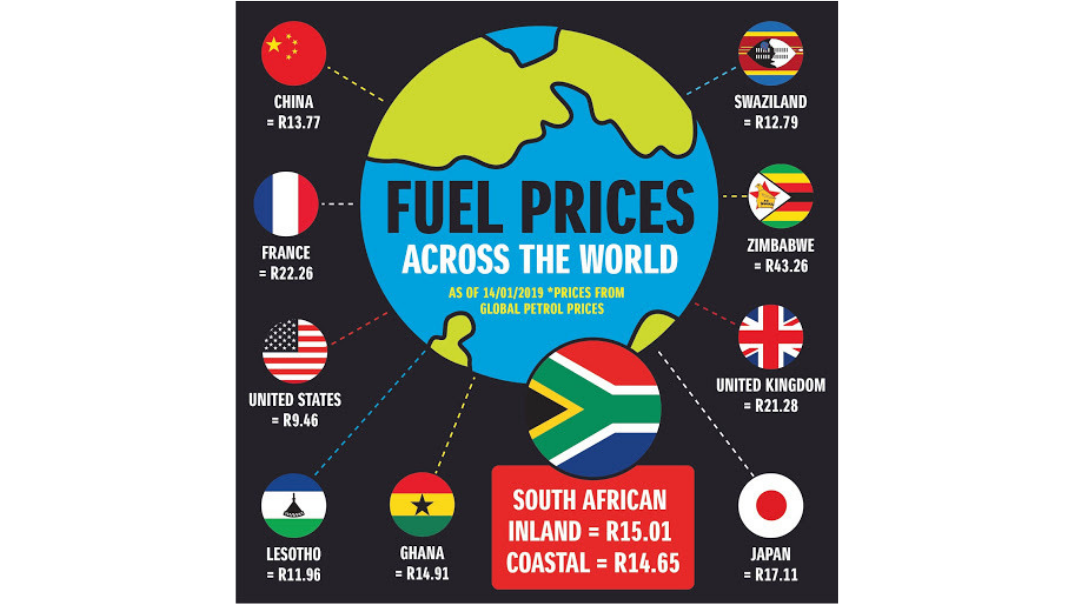
According to Global Petrol Prices, the average price of gasoline around the world is $1.11 per litre, which is R15.47. Richer countries usually have higher prices whereas the poorer countries (and those that produce oil) have significantly lower prices. The only exception is the United States with its advanced and dominant economy with low fuel prices. The difference in pricing is due to each country’s taxes and subsidies for fuel.
Despite Venezuelan President Nicolas Maduro stating that his country's fuel price would be increased in line with world market prices, Venezuela is the country with the cheapest fuel in the world at R0.14. People in Hong Kong’s wallets are taking quite a hit at R29.07. Oil-rich countries like Saudi Arabia and Iran enjoy some of the lowest fuel prices at R7.69 and R4.13 respectively.
Despite South Africa having had increasing fuel prices, we’re still one of the cheaper fuel prices in the world. Without the taxes levied on fuel, South Africa would enjoy fuel prices similar to those of our neighbouring countries. Botswana and Lesotho receive fuel from South Africa but pay R 12.40 due to not having the tax levies that we do.
Now that you know more about fuel and how we use it, you may want to know more about how to save fuel in your automatic or manual car. You can find this and so much more on our blog and get it all straight to your inbox by subscribing.

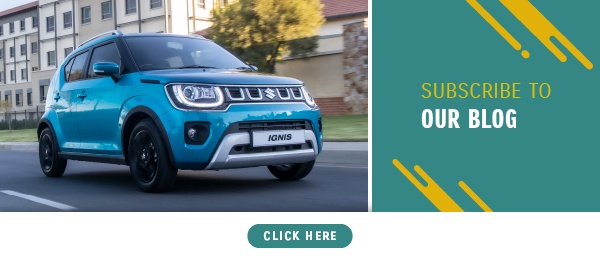

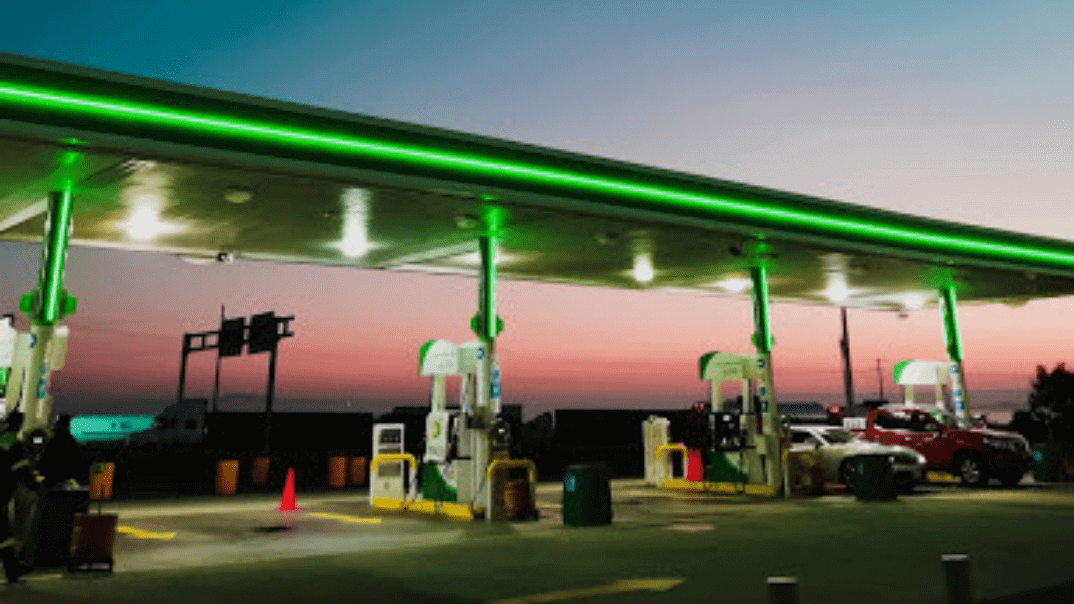
![What will I spend on fuel with the changing fuel price? [Calculator]](https://blog.suzukiauto.co.za/hubfs/featured-1.png)